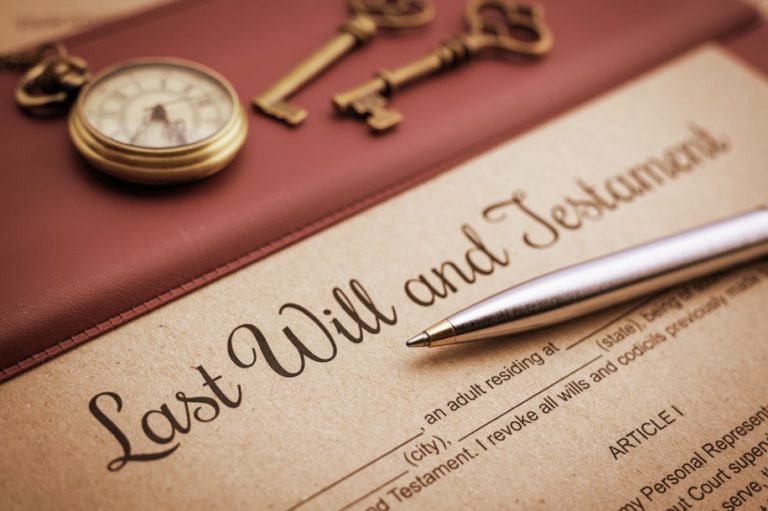Are you looking into probate to see if you need it? Did you know that over 2.4 million people die each year in the U.S.? Due to this, the demand for probate can be high.
You might be wondering, what is probate, and do I need it? In this article, dive into the answer to the question, how does probate work? Read on to explore all about probate, and why it’s essential to have for your loved ones’ futures.
What Is Probate?
It’s the legal process that occurs after a person dies to show the deceased’s last will and testament before death. This can include selling assets, debts, or giving assets to beneficiaries. If a will and testament doesn’t exist, then it’s up to the probate court to have a representative manage the process.
How Does It Work?
If you have a will that has an executor, that person will be in charge of the probate process. They’ll need to file documents with the probate court within a certain period of time.
If you don’t have an executor, a representative will handle the probate affairs. This is normally your next of kin. They can always refuse the role though.
Verifying Assets
When the probate process commences, your executor will identify the value and assets available. They’ll have to look into investment account statements, banking, and tax documents. Depending on the state, if you’re the executor, you’ll need to give the court a document that shows your loved one’s assets.
During the process, you’ll need to make sure that insurance, property taxes, and mortgage payments are covered during the probate process. Your loved one’s estate can pay off these debts.
Notifying Creditors
After your loved one passes, you’ll need to contact creditors and let them know of their death. Creditors can file a claim during the probate court process which you can dispute.
Handing Out Assets
Once the fees and taxes are paid, assets and money can be given to their heirs. Joint property owners and spouses usually receive the first from the property distribution. If there are no joint owners or spouse, then the assets will be split amongst the children.
The Process Can Be Lengthy
Once the probate process begins, you might notice that it takes months or years to complete(depending on your location). It’s also an expensive process.
When a will has all of the information planned out, it can speed up the process. The probate process is expensive due to creditor notice fees, tax preparation, attorney fees, filing, and appraisal fees.
Is Probate Necessary?
Probate is necessary if the will was created when your loved one was under duress. Also, if they were not mentally competent when they made up the will. It’s also necessary if the will wasn’t legal, or written properly.
When Is It Not Necessary?
Probate isn’t needed when the property can pass through outside of probate, and when the estate is small. Each state has different rules as far as the amount of money that will be distributed among the surviving relatives.
If the property falls under trusts, designated beneficiary, or a jointly owned property, it might be able to skip the probate process. A trust is a way that your family can inherit your money without having to go through the probate process.
Paying Debts
After your loved one passes, you’ll use their estate funds to pay for any bills or debts that are left. There might be additional bills that accumulated during their final illness.
Intestate Estates
This is where your loved one didn’t leave a will that’s valid. This could be due to not creating a legal will, or an heir disputed it.
Estate Planning Tips
Ensure that you have good estate planning in place to avoid the probate process from holding up the assets. Speak with a financial advisor who can help you with setting up your estate and managing your money.
Ensure that you have a living trust that can’t be disputed, and is legal. This can help your loved ones avoid the probate process.
Letting Beneficiaries Know
If you’re the executor, you must let all beneficiaries know that they’re in the will. If you don’t do so, you can face a lawsuit from the beneficiaries. They can look for compensation for damages when they haven’t received their assets.
In the will, it might also talk about the guardians of any pets or children. As the executor, you’ll need to let them know if they’re the assigned guardian.
Probate Court
After going to probate court and giving the judge the last will and testament, an heir can dispute the will. If this occurs, they’ll have to file the paperwork within a probate court.
Many counties will have courts that are just dedicated to guardianships, probate, and other estate concerns. You can check your state’s website to locate the court’s location.
Lawyer Fees
If you decide to hire an attorney, there will be attorney fees that must be paid. Lawyers normally won’t take the fees until after the probation is complete. In some states, your attorney can take a percentage of the estate value.
Answering the Question To: How Does Probate Work?
Now that you’ve explored the answer to the question, how does probate work, you should be well on your way to deciding if it’s right for you. Looking for more tips in everyday life? For everything from tips for sleeping through the night, to saying goodbye to toxic tap water, check out our other articles today!


0 Comments